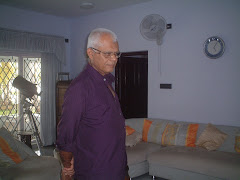One of the primary goals in a TA training group is to be
emancipated from the stroke economy. As we all know, Claude Steiner outlined
the five restrictive rules known as the stroke economy that we have all imbibed
from our culture. In addition, there are many writings on how our initiation
into the stroke economy is for the benefit of capitalism and obedience to the
state. The artificial scarcity of strokes created by the parenting environment
coaxes human infants to submit to their caretakers eventually leading to the
formation of script.
Is the goal of being liberated from the stroke economy being
met in TA groups? Or are we using the same rules to the advantage of the
trainers to mould and shape the trainees to their liking? These and some other
important questions need to be addressed. Prima facie, there seems to be a
liberal outpour of positive strokes which is very attractive for the
stroke-starved trainees. The trainees become determined to conform to group
norms and adhere to study goals to ward off conditional negative strokes and
store up on the positive strokes. The feedback at the end of teaching practices
is where the bulk of strokes are exchanged and this is the fertile ground for
favouritism. If some trainees are at the mercy of the whims and fancies of the
group at the moment, others have worked behind the scenes to garner favour and
assure their quota of positive strokes. At the psychological level, everyone
knows that it is a “you scratch my back and I will scratch yours” game except
the very clueless or courageous few. To
the so-called Martian of Bernian fame, the entire process will appear dangerously
hilarious.
A group of people will hurl out praises and abuses as they
please while one person sits in a chair and takes it all in. The trainee in the
hot seat is supposed to receive or reject strokes as needed. Meanwhile the
other trainees make explicit their hidden hostilities, discounting, grandiosity,
overdetailing – the entire works of psychopathology that they are carrying
within. At best, the trainee in the spotlight is expected to discern discounts
from strokes and gain some insight. Trainees are in the TA group because they
are unable to do so in the first place. So it follows that some of them go into
script either visibly or covertly and get closer to the payoff. The same
applies to the stroke givers too.
It is to avoid such a perilous condition that the idea of
contract exists. If personal growth and change is what TA affords, then that is
plausible only when a contract is made by the trainee attending to own needs
genuinely at the moment of presentation. If the trainee has the need to be celebrated
and supported, then she has every right to request that. If the trainee needs
to improve in a specific area or explore areas of improvement, that also is his
prerogative. That freedom to choose is what makes the whole process humane
rather than a gallows roadshow.
TA is usually taught in an adult setting. As grownups we
carry prior experiences and learning to the classroom. As TA trainers, we need
to respect and account for that. It is important to let the person decide the
pace at which they want to grow and change. Berne has cautioned us to be at
least two steps behind the counselee. The same applies to the trainees. The
need has to come from them.
Communication is effective only when we take into account
the frame of reference of the listener. No matter how well-intentioned or
potent a feedback is being handed down to the trainee, if there is no
agreement by the trainee to receive it, there will not be any growth. If the
3Ps of protection, permission and potency are to be satisfied, the principles
of TA have to be upheld. It is in this kind of benevolent environment that
trainees can progress to autonomy and bid adieu to their scripts.







No comments:
Post a Comment